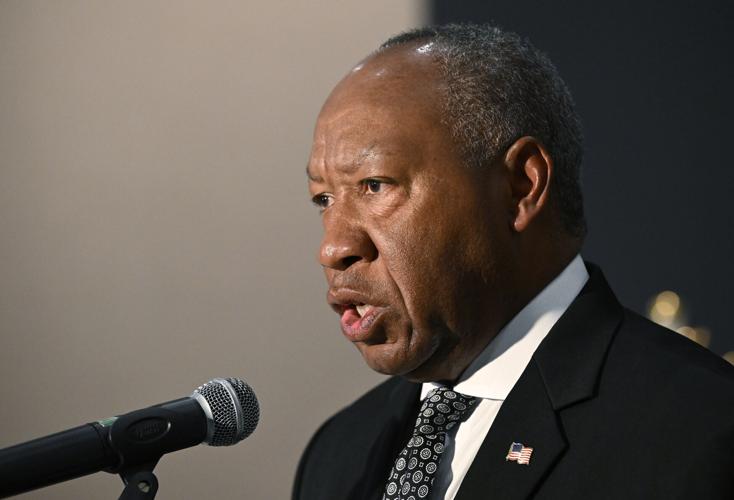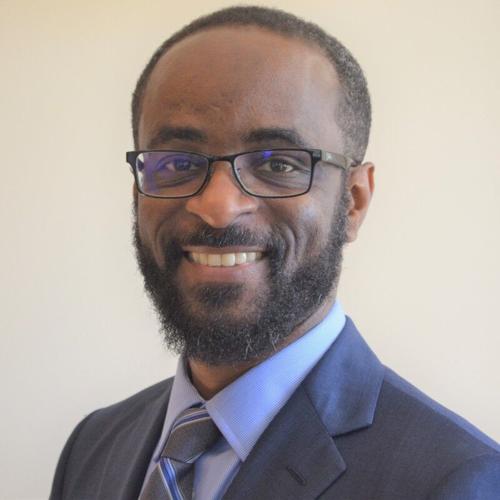In November, voters came out in force to vote for change in the Caddo Parish Sheriff’s Office. In a parish whose citizens are over 50% Black, the majority voted for Henry Whitehorn to become the first Black sheriff in Caddo Parish history.
Whitehorn's victory by a single vote has been challenged, and a new election has been ordered for March 23. Still, the vote provided a path for representation that reflected local Black citizens in a state where the vast majority of Louisiana’s district attorneys and sheriffs are White — despite the stark overrepresentation of Black residents in the state’s criminal legal system.
The jarring lack of diversity among Louisiana law enforcement and its devastating consequences is exposed in "Out of Balance: Racial Disparity Among Louisiana’s Sheriffs and Prosecutors." The report, released earlier this year by the Southern Poverty Law Center Action Fund, details how Black people are disproportionately impacted by the criminal legal system in the state. Black people make up 57% and 65% of Louisiana jails and prisons, respectively, while comprising only 33% of the state population. However, Black people have almost no representation in those with power over this system.
In fact, as of February 2023, Black Louisianans only made up 6% and 12% of the state’s sheriffs and DAs, respectively. Thus, Black people facing incarceration often have their freedoms determined by the people farthest from their experience. This fact looms large in a state infamous for its proficiency in jailing people, now ranking second in the nation for its incarceration rate.
These hard racial disparities have not only endured for centuries but were invented by design.
In the words of Louisiana Gov. Louis A. Wiltz in 1880, the right to vote was to "be kept free from all improper influences" and the state must "secure the purity of the ballot box." These blatant racial undertones were not lost on white post-Reconstruction lawmakers, who responded by codifying a literacy test, poll tax and grandfather clause in their next state constitution — disqualifying Black voters by the hundreds of thousands. Article 210 of this same constitution restricts Louisiana citizens from running for elected office if they aren’t a “duly qualified elector of the State.” Thus, years of Jim Crow’s deliberate disenfranchisement not only undermined the Black vote but also eligible Black elected leadership — allowing for a legacy of law enforcement where white authority becomes the expectation.
Today, our research names how racial diversity among the upper ranks of the criminal legal system’s actors could be a vital component for change from Louisiana’s harsh status quo.
Louisiana’s status quo has seen 786 deaths occur in parish jails between 2015 and 2019. The majority of those deaths had a Black person dying under the care of a White man charged with keeping that jail safe, with another White man advocating for detainment in jails known for everything but safety.
Louisiana’s status quo involves how the former longtime Caddo Parish sheriff was on record opposing the release of people from his jail because of their value in doing menial labor. His specific expression that forced labor from predominantly Black people was a "necessary evil to keep the doors open" also drew a clear comparison to modern-day slavery.
Louisiana’s status quo includes a former Orleans Parish prosecutor notorious for illegally threatening Black people with fake subpoenas and jail time for crime victims uncooperative with their testimony. This same office once employed an assistant DA after a viral video surfaced of her repeatedly using the N-word.
Without accountability, Louisiana’s status quo will not change.
Importantly, however, as we saw in Caddo Parish, law enforcement that is representative of the communities it serves is possible. To achieve representative law enforcement in Louisiana’s sheriffs and DAs on a broad scale, Louisianans must educate themselves about who their local parish sheriff and district attorney are and where they stand on issues of racial equity, and for the change they want to see and the change they deserve.
That is the way we change the status quo.
Delvin Davis is a senior analyst and Terry Landry is an attorney and policy director with the Southern Poverty Law Center.


